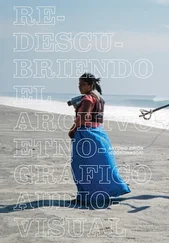Is there a way to separate the need for political legitimation following major disasters with just approaches to remediation? Do outside agencies have a legitimate role in influencing the nature of these processes, or will they continue to be shaped by the specific interests of international economic and scientific agencies? How are we to judge how future changes in social and economic contexts will affect the legitimacy of mechanisms of compensation and categories of suffering? And who is to say when such mechanisms and categories should be phased out, and on what basis? Finally, how should such questions be weighed against the reality of nonclosure of Chernobyl’s biological effects? All of these are new ethical issues that bear on the fate of these populations; a sustained scientific and ethnographic engagement is required for their understanding.
The life of these affected populations is interwoven with and determined by the larger historical events of the Soviet Union’s collapse and the harsh political-economic restructuring that followed. Their combined cumulative effects do not lend themselves to easy psychological labels. Nor can they be reduced to assessments of isolated individuals’ perceptions and measures of social adaptation. By outlining the social, scientific, and political constructions of their experiences, I have illustrated the kinds of subject positions these affected populations have taken up over time in an effort to cope with their changing political, moral, and biomedical circumstances.
The dynamism of this process was made clear to me in my last visit to the clinical wards in 2000, right at the time when the Russian submarine, the Kursk, sank in the Barents Sea. The patients with whom I watched the disaster’s television coverage noted the government’s denial of any responsibility for the disaster and the delay of rescue and recovery efforts. To these particular viewers, the story of the Kursk read like a replay of the story of Chernobyl, but only to an extent. As I gathered the opinions of those interned in the neurological ward, I documented, as Martha Minow has done in the wake of South Africa’s democratization, how present-day processes of recompense, of which these patients were a part, were entangled with new patterns of inequality that themselves presented the most immediate issues of social injustice (1998:157). The very framing of “injury” now entailed the social and health costs associated with state and market transformations and emerging inequalities.
The extent to which new health costs are created by social and political circumstances has been shown by a number of anthropologists. They were also being accounted for by these patients in terms of a troubling cost-benefit assessment. A middle-aged man working as an engineer at Chernobyl expected that, given international pressure for the plant’s closure by the end of that year, his prospects of keeping his well-paid job were nil. It was time for him to stop hiding his thyroid problems and to register himself as a disabled person. A middle-aged woman wanted to keep working in the Zone in spite of her heart problems because the salary she earned there allowed her to pay her son’s law school tuition. These examples illustrate the problematic interaction between compensation and market conditions inasmuch as those interactions produce incentive for further health deterioration and illness. Such incentives, however, do not represent an argument for the abolition of the compensation system as such. The social conditions that have limited other options only make these workers desire their one remaining option much more, and at a greater personal cost. Compensation no longer means a simple payment for past damages; it is an attempt to balance or neutralize opposing forces that give or take life.
The effects of the economy on health are changing the nature and terms of citizenship. The theme of citizenship is particularly important here not only because of its traditional role in framing individuals’ life chances by increasing their welfare and health care access—benefits formerly guaranteed by permanent employment in socialist enterprises. The very idea of citizenship is now charged with the superadded burden of survival. This process represents a shift, perhaps even a reversal, in the underlying principles of a classical citizenship, inasmuch as those principles cannot guarantee the basic biological existence of populations that is a prerequisite for political life. Though this may seem like an obvious point, it is also a devastating one. The collective/individual survival strategy of biological citizenship represents a complex intersection of social institutions and the intense vulnerabilities of populations exposed to the determinations of the international political economy; it is also part of a larger story of democratization and new structures of governance in the postsocialist states. In these states, emergent democratic forms now coincide with distinct patterns of social inclusion and exclusion through which rights are sometimes realized, but only on a limited basis. Taken together, these dynamics alternately mask and expose a stark, if not overwhelming, tension that informs the specifics of this case but also represents trends in the governance and politics of life more generally.
As confirmed by statistical increases in preventable disease and illness, developing and postsocialist countries are experiencing the social and health costs of political collapse, economic restructuring, and new or ongoing poverty (Desjarlais et al. 1995). Along with this process, and as I have shown in this book, the biology of citizens is becoming part of a political process and a medium of government. There is much evidence to show that in areas where life expectancy increased and mortality decreased under the auspices of a “health transition,” lives are in fact becoming shorter, hungrier, more diseased, and less protected (Chen et al. 1994). Interventions into already compromised lives increasingly take the form of human capital assessments and cost-benefit and health utility analyses. Critical awareness of this selective give-and-take is reflected in Africa, where a delay of efforts by international pharmaceutical companies to reduce treatment costs has indirectly contributed to growing AIDS mortality and is now leading to calls for compensation. A political economics of expendability was recently highlighted in the Czech Republic, where an American cigarette manufacturer, in an attempt to reduce cigarette taxes, argued that smokers save the state millions of health dollars by dying prematurely. The nuclear industry has recently implemented international standards that legitimate uneven protection among nuclear workers on the basis of what is “reasonably achievable,” given variable socioeconomic environments.
These examples suggest that in the former Soviet Union, where democratic state building is evolving in tandem with market formations, existing forms of inequality are being naturalized and administered in new political and technical ways. Indeed, these inequalities are being inscribed in the lives of populations through policies, scientific standards and regulations, and selective social protection and access to health care—all the while broadening the meaning of the term “compensation.” The naturalization and capitalization of socioeconomic difference, in parallel with processes of democratization, has been one of the most paradoxical and troubling phenomena for any ethnographer working in the former Soviet Union to watch. There are now many people in these areas grappling with the price they have to pay for living and, less so these days, laboring in their socioeconomic and political worlds. They belong to new experimental arenas in which science, state building, and market developments are intertwined, and where new social and institutional forms are testing the limits of citizenship and ethics. In such contexts, ethnography’s role involves detailing the elements that unsettle and entangle people’s lives, and maintaining a prospective sense of the contingencies of human existence, such that its forms find a place within the discipline of observation.
Читать дальше












